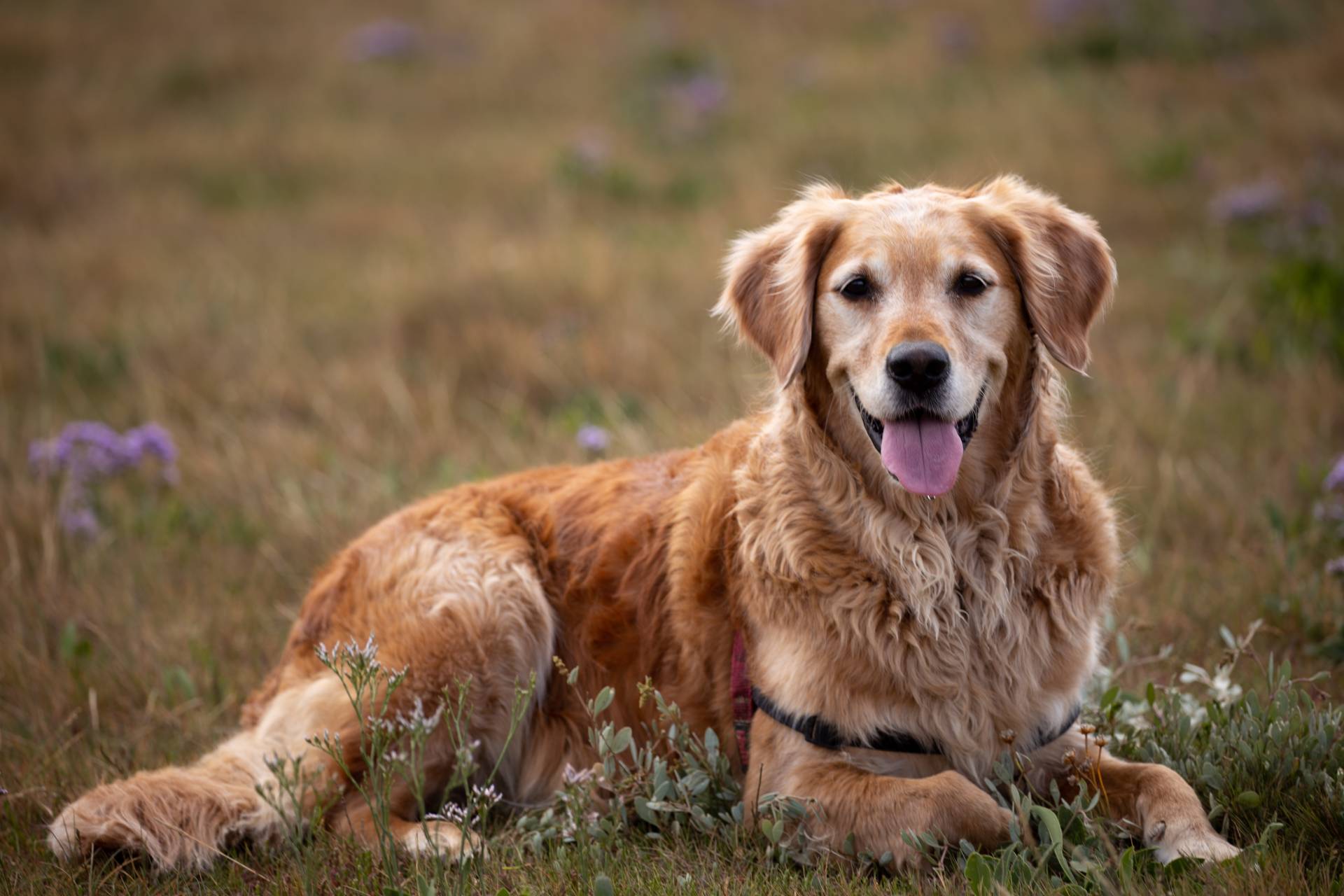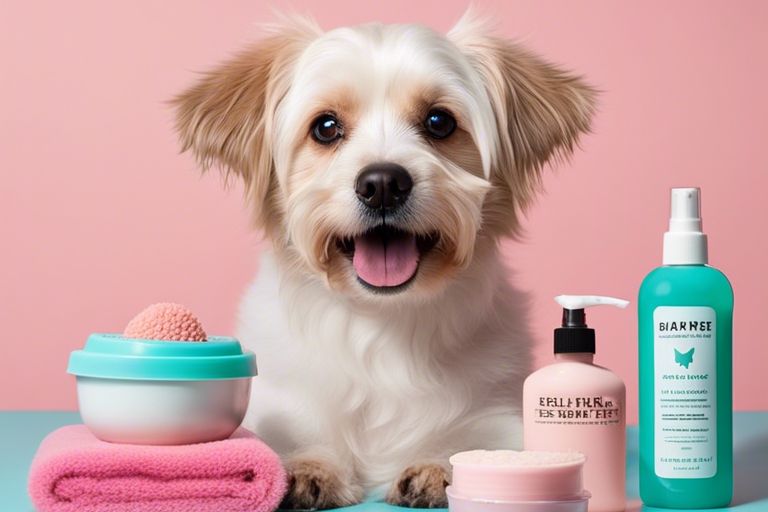Curious to know why your lovable Labrador retriever is experiencing an unusual amount of mouth salivation? It’s not uncommon for our furry friends to have excessive drooling, and it can be caused by various factors. In this informative blog post, we’ll explore some common reasons behind your Labrador’s excessive mouth salivation, and how you can help alleviate the issue. So, let’s dive right in and uncover the reasons behind this slobbery situation!
Understanding Your Labrador’s Salivation
By now, you may have noticed that your Labrador Retriever is experiencing excessive mouth salivation, and you are probably wondering why. Understanding why your furry friend is drooling excessively can help you take the necessary steps to ensure their health and well-being. In this chapter, we will explore the various factors that contribute to your Labrador’s salivation and give you a better understanding of what might be going on.
The Normal Salivation Process in Labradors
Labradors, like other dogs, naturally drool to some extent. Saliva plays a vital role in their digestive process and helps keep their mouth moist, aiding in the breakdown and swallowing of food. Additionally, it helps maintain oral hygiene by washing away bacteria and reducing the risk of tooth decay and gum disease. Typically, a moderate amount of drooling is normal for Labradors. However, understanding what is considered excessive is crucial in identifying any potential underlying issues.
When Does the Salivation Become Excessive?
Excessive drooling, also known as hypersalivation, occurs when your Labrador’s saliva production exceeds the normal amount. While it’s normal for your dog to drool more in certain situations like when anticipating a meal or feeling excited, continuous and significant drooling could indicate an underlying health problem. Excessive salivation can be attributed to several factors, including dental issues, gastrointestinal problems, ingestion of toxic substances, or even anxiety and stress. Identifying the root cause is essential in determining the appropriate course of action to alleviate discomfort and ensure your Labrador’s well-being.
Causes of Excessive Mouth Salivation in Labradors
One common issue you may notice with your Labrador Retriever is excessive mouth salivation, also known as hypersalivation. While a certain amount of drooling is normal, excessive drooling could indicate an underlying problem. In this chapter, we will explore some of the common causes of excessive mouth salivation in Labradors and discuss how you can address them.
Health reasons that lead to excessive salivation
Your Labrador’s excessive mouth salivation could be linked to various health issues. Dental problems, such as gum disease, tooth decay, or an oral infection, can cause your dog to drool excessively. Additionally, Labradors may experience hypersalivation as a result of nausea or an upset stomach. If your dog is feeling unwell, drooling may be a sign of discomfort. Keep an eye out for other symptoms like vomiting, diarrhea, or lack of appetite, which could help you determine if there is an underlying health condition causing the excess salivation. Consulting with your veterinarian is essential for a thorough examination and proper diagnosis.
Effects of diet and exercise on your Labrador’s salivation
Your Labrador Retriever’s diet and exercise routine can also play a significant role in their mouth salivation. Feeding your dog a diet that is high in salt or certain ingredients can result in excessive drooling. Similarly, food allergies or sensitivities can trigger inflammation in your Labrador’s mouth, leading to increased saliva production. It is crucial to provide a balanced and nutritious diet for your furry friend to maintain their overall health and prevent any dietary-related issues that can cause excessive mouth salivation.
Moreover, exercise is vital for your Labrador’s well-being, but excessive exercise or overheating can cause them to pant excessively and drool more than usual. It is important to ensure that your dog is getting the appropriate amount of exercise for their age and breed, allowing them to release energy without becoming exhausted or overheated.
By understanding the potential health reasons and considering the impact of diet and exercise, you can help address the excessive mouth salivation in your Labrador Retriever. Taking the necessary steps to identify and address the underlying causes will not only improve their comfort but also enhance their overall quality of life.
Dealing with Your Labrador’s Excessive Salivation
While excessive mouth salivation in your Labrador Retriever may be concerning, there are steps you can take to address and alleviate this issue. Dealing with your Labrador’s excessive salivation involves a combination of reviewing their diet and exercise routine, as well as considering medical treatments and interventions. By taking these steps, you can help improve your furry friend’s well-being and reduce the discomfort caused by excessive salivation. Let’s explore these approaches in more detail.
Reviewing your Labrador’s diet and exercise routine
When it comes to excessive mouth salivation in Labradors, it’s important to first examine their diet and exercise routine. A diet high in low-quality, processed foods or an imbalance in their nutrition can contribute to excessive salivation. Ensure that you are providing your Labrador with a well-balanced, nutritious diet that includes high-quality protein sources and avoids any potential allergens. Additionally, consider their exercise routine. Regular exercise is not only essential for their overall health but can also help regulate their saliva production. Make sure your Labrador receives sufficient physical activity and mental stimulation throughout the day to maintain a healthy balance.
Medical treatments and interventions
If adjusting the diet and exercise routine does not alleviate your Labrador’s excessive salivation, it may be necessary to explore medical treatments and interventions. Excessive salivation can be a symptom of various underlying health conditions that should be diagnosed and treated by a veterinarian. Your veterinarian can conduct a thorough examination, including blood tests and other diagnostic procedures, to identify any potential medical issues. Based on the diagnosis, they may recommend specific medications or treatments to address the excessive salivation. Always consult with a professional to ensure you are taking the appropriate steps for your Labrador’s specific situation.
Final Words
So, if you notice that your Labrador Retriever is experiencing excessive mouth salivation, it is important to take action and find out the underlying cause. By understanding the potential reasons, such as dental issues, excitement, or nausea, you can address the problem and ensure your furry friend receives the proper care. With your attention and the help of a veterinarian, you can help your loyal Labrador lead a healthy and comfortable life.
FAQ
Q: Why is my Labrador Retriever experiencing excessive mouth salivation?
A: Excessive mouth salivation in Labrador Retrievers can be caused by a variety of factors. It could be due to anticipation of food, heat, nausea, anxiety, dental issues, or even certain medications. If your Labrador is consistently drooling excessively, it’s a good idea to consult a veterinarian to determine the underlying cause and appropriate treatment.
Q: How can I determine if my Labrador’s excessive drooling is normal or a cause for concern?
A: While some drooling is normal for Labrador Retrievers, excessive drooling that is out of the ordinary should be monitored closely. If you notice an increase in drooling that is accompanied by other symptoms such as vomiting, diarrhea, lethargy, or a change in appetite, it may be a sign of a more serious health issue. In such cases, it’s wise to seek guidance from a qualified veterinarian.
Q: Can anxiety be the cause of excessive mouth salivation in Labradors?
A: Yes, anxiety can contribute to excessive mouth salivation in Labradors. Just like humans, dogs can experience anxiety and stress, which may manifest in excessive drooling. Common triggers for anxiety in Labradors include separation anxiety, fear of loud noises, or unfamiliar environments. If you suspect anxiety is the cause, it’s beneficial to consult with a professional dog trainer or a veterinarian for advice on managing your Labrador’s anxiety.
Q: Are there any dental issues that can lead to excessive salivation in Labradors?
A: Yes, dental problems can be a culprit for excessive mouth salivation in Labradors. Periodontal disease, broken teeth, or foreign objects lodged in the mouth can cause discomfort and drooling. Regular dental care, such as teeth brushing and routine check-ups with a veterinarian, can help prevent and detect dental issues early on. If you notice excessive drooling along with unpleasant breath or difficulty eating, it’s recommended to have your Labrador’s dental health checked.
Q: Can medications cause excessive mouth salivation in Labradors?
A: Some medications, particularly those that increase saliva production or cause mouth discomfort, can result in excessive mouth salivation in Labradors. If your Labrador has recently started taking a new medication and you’ve noticed an increase in drooling, consult with your veterinarian. They can review the medication and, if necessary, offer alternative solutions or adjust the dosage to alleviate the excessive salivation.

